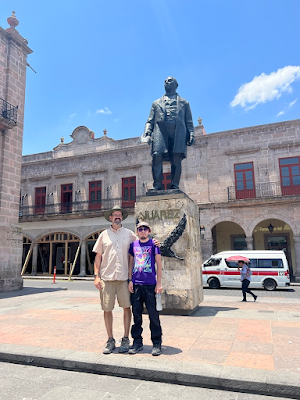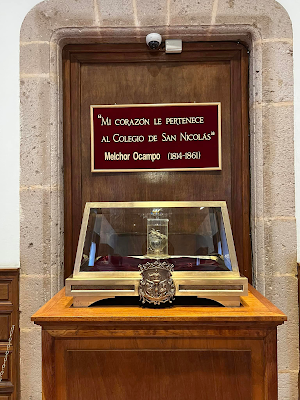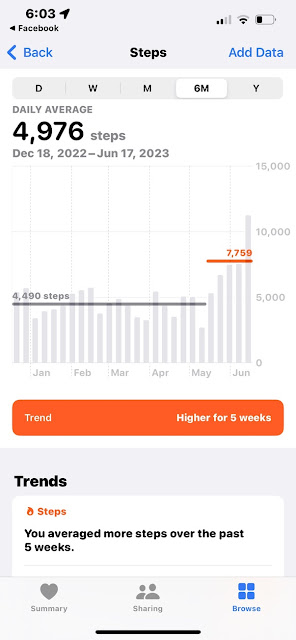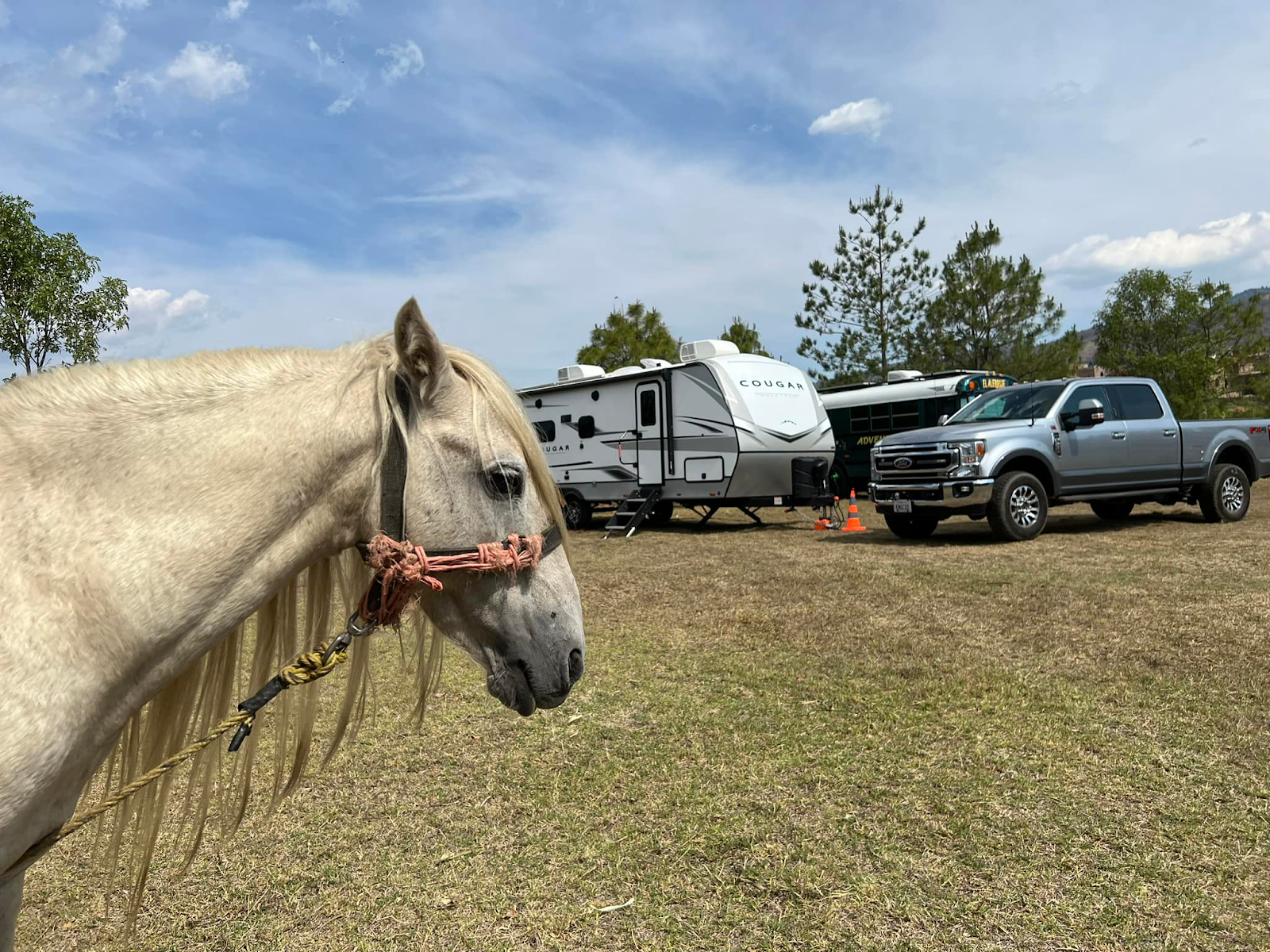I should write two posts like this, one where I'm not fluent in Spanish (this post) and the other where I am. That's because the people in Mexico are incredibly friendly, helpful, outgoing, and proud of their country. I get that in translation, as my buddy on this trip tends to start up conversations with just about everyone. Asking a shop girl a simple "como estas?" (How are you doing?) will elicit a big smile and a conversation. Nobody asks about her day, apparently. So here's my pre fluency (wide eyed) take on why I love Mexico:
The People. Mexico is family oriented, rather than focused on the individual. I'm a bit envious as I see families strolling in the park, kids riding their bikes outside without anyone calling the police, and traditional food and culture being such a strong part of their lives. People take care of their families and have a sense of responsibility for their communities. Homelessness on the streets isn't completely absent, but it's notable when you see someone. The divorce rate is half what it is in the US (but climbing fast). It's not unusual to have a town where beautiful murals line the back streets, whereas in the US it would be a target for graffiti or someone would complain a mural offends them. Mexico has shared community values that are lacking in the US.
 |
| Murals in El Rosario |
It's not unusual to have people stop to try to help you on the side of the road, or for a third party to jump in and try to translate for you, if you're having a problem (or just speak Spanish poorly). We had our cab driver direct us to a family members laundromat, when we were looking for one, and the auto parts store owner directed us to a reputable mechanic to install my truck lights. We are stronger when we work together and that's well understood.
We haven't had any instances of crime or seen anything related to cartel violence.
 |
Flashing lights are considered a safety feature in Mexico.
Got cheap Chinese LED lights front and back for $30 and paid $40 for the installation |
Mexico is a Bit Rough. Traveling Mexico feels like an adventure. Mexico is a bit rough when it comes to streets, buildings, and terrain. Mexico is a geographic basket case, with mountainous terrain, few navigable rivers, jungle, desert and stifling coastal cities. Half the population lives in a narrow band of the Central Highlands (our destination, where we are now). This is also where you'll find the most culture, including ancient culture, because that narrow band has always been the place to be.
Building roads and infrastructure is very difficult and tends to only benefit a small number of people. This has led to a degree of isolation that had the benefit of preserving local culture. Towns take pride in their thing, whatever it may be. There is no mega highway to homogenize cities and towns. In fact, it's shocking how major cities are often linked with incredibly rough, two lane "highways" through the wilderness. Mexico is about being thankful there is a road there at all!
 |
| Sand dunes drift over the highway outside Puerto Penasco |
Welcome to Your Childhood. Mexico reminds me of my childhood and it hits those nostalgic notes hard. The cities remind me of my childhood in Pennsylvania in the 70's, with its legacy architecture and crumbling infrastructure. Mexico is inherently less safe, lacking the urban re-design towards safety and clarity we've seen in the last forty years in the US. There are no ADA requirements. Mexico is like riding a bike for the first time with the training wheels off. There is a slight tang of danger, like how I grew up with playgrounds made of cement.
The rural areas remind me of my childhood in Southern California, when agriculture stood alongside growing suburbia. California was briefly part of Mexico and it remains uncannily similar, even thousands of miles to the south. The bigger cities have mall culture, with bustling shops that remind me of growing up in the 80's, including some of the stores that existed back then that are mostly gone now: Thrifty, Sears, Radio Shack, and even Blockbuster. Amazon.mx is a joke. Kids play in the street and people drive defensively, rather than being mindless cogs in a well oiled road system where all the decisions have been made for you.
 |
| Corundas |
The Food. When we're out exploring, we can generally eat whatever we want and lose weight. The food variety is fantastic and varies by region. The food quality is generally higher without the additives and preservatives we get in our food at home. If you want to eat a mystery meat hamburger at a food stand, the quality may suffer a bit. We've noticed some chronic health issues subside, blamed on wheat for the most part.
The portions are more reasonable and there's less of a focus on carbs. Carbs are optional in Mexico, they're on you. Mexico has a serious obesity problem, I surmise for the same reason the United States does; it's often easier to eat poorly and cheaply when you're poor. The markets are full of junk food, alongside traditional healthy food, often sold by weight. Imagine buying one stick of celery for the soup tonight, purchased by the kilo. Next to it might be an inexpensive bright pink pack of cookies with warnings for excessive calories and sugar.
The History. I strolled through a library of 500 year old books this week in Morelia. The founder of the local university was martyred in the name of science and for implementing populist political reforms. His daughter literally donated his heart to the university, which they keep in a glass container in the library. The university had his heart in life and now in death. So dramatic.
 |
| Statue of Benito Juarez, President-Reformer-Martyr |
Mexicans are fiercely proud of their country and their independence. The independence movement is populist, rather than elites throwing off the yoke of other elites. The restaurant you're looking for might be on the corner of Insurgent Way and Independence Ave. There are streets named after particular dates related to independence. They celebrate martyred children, women who took up arms, and populist leaders who died to bring reforms. The Mexicans have driven off the Spanish, Belgians, Germans, French, and Americans at one time or another. The US once initiated a successful coup in Mexico. You will see statues, street names, and public works dedicated to the remembrance of throwing off the yoke of oppression. Mexico's history is also pretty dark, but independence is an area everyone can agree on. What should happen after was a different matter.
If post colonial history isn't enough, you have thousands of years of pre-colonial culture to explore, still present in the indigenous people of the land. The mysterious Olmecs, the Mayans and Aztecs with their ancient architecture and science, and empires you've probably never heard of that lived before, during or after those peoples, sometimes fighting them off to form their own empires, like the Purépecha, in Michoacan, the state I'm in now. A lot of ancient culture in Mexico (and Guatemala and Belize) are still being uncovered. It's not uncommon to explore a ruin and have the guide point out how there's a huge ancient city leading off into the jungle, if only we had the money to clear it. In Palenque, occasional lightning strikes will hit a tree, the tree will fall over, to reveal hidden archeological finds underneath. How is that not intriguing?
 |
| Island of Janitzio with statue of revolutionary war leader, José Maria Morelos |
 |
The temple ruins near Tzintzuntzan,
the capital of the Purépecha Empire |
The Magical Towns. Visiting magical towns, pueblos magicos, combines elements of all these things together. The people, the local environment, food and history, coalesce into magical spaces. Sometimes there's just one thing interesting about a magical town. Sometimes a town hits many notes. Then we find cities like Morelia, a UNESCO World Heritage Site, that fire on all cylinders and we start looking at housing prices. Yeah, I could live here. Or no, it's not quite right for me. It's the energy of the people that usually draw me in, especially if it's a vibrant college town like Guanajuato or downtown Morelia. Each town, each city is lovely in its own way, certainly not perfect. Each one can surprise us as we explore it. That delightfulness seems to be endless in this amazing country.































